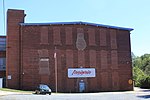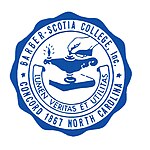Stonewall Jackson Youth Development Center

The Stonewall Jackson Youth Development Center is a juvenile correctional facility of the North Carolina Department of Public Safety located in unincorporated Cabarrus County, North Carolina, near Concord.The Stonewall Jackson Manual Training and Industrial School was established by an act of the state legislature in 1907 and opened in 1909 as the first juvenile detention facility in North Carolina. The school was named for Confederate General Stonewall Jackson. The institution is located three miles (5 km) from Concord. Walter Thompson was the first principal. Originally encompassing 290 acres (1.2 km2), the campus is 800 acres (3,200,000 m2), 58 acres (230,000 m2) of which are still used, with 5 buildings on the property. As of 2018–19, the Youth Development Center had 107 residents and the Juvenile Detention Center had 26, with full-time equivalent staff of 257.Due to the school's pioneering status and the quality of several of its early buildings, the Stonewall Jackson Training School Historic District has been listed on the National Register of Historic Places. This designation includes 71 acres and 50 buildings.It was previously operated by the North Carolina Department of Juvenile Justice and Delinquency Prevention.
Excerpt from the Wikipedia article Stonewall Jackson Youth Development Center (License: CC BY-SA 3.0, Authors, Images).Stonewall Jackson Youth Development Center
Geographical coordinates (GPS) Address Nearby Places Show on map
Geographical coordinates (GPS)
| Latitude | Longitude |
|---|---|
| N 35.364166666667 ° | E -80.598333333333 ° |
Address
28025
North Carolina, United States
Open on Google Maps





